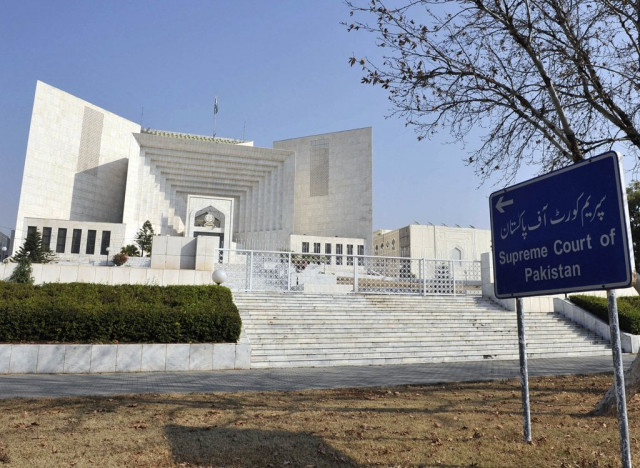SC declares Sindh govt move illegal
Provincial govt increases minimum wage to Rs25,000 per month without taking Minimum Wages Board into confidence

The top court has ruled that the Sindh government travelled beyond its authority and encroached upon the mandate of the Minimum Wages Board by issuing a notification of raising the minimum rates of wages for unskilled adult and juvenile workers employed in all industrial/commercial establishments in the province to Rs25,000 per month with effect from July 1, 2021.
"Taking into consideration the provisions of the (Sindh Minimum Wages Act, 2015) Act and the objective behind it, we are of the view that the Government travelled beyond its authority to encroach upon the mandate of the Board and issued the Notification without lawful authority,” an eight-page judgment authored by Justice Syed Mansoor Ali Shah said while setting aside the Sindh High Court order wherein raise of minimum wage was endorsed.
A three-judge bench led by Chief Justice Umar Ata Bandial heard the matter.
The order said, “At the same time, it needs to be said that we are not unmoved by the considerations which urged the Government to issue the Notification. Rather, we do appreciate the concern shown by the Government for the welfare of the workers. However, the revision of minimum wage is to be done according to the policy and mechanism laid down in the Act. The Government cannot go against the provisions of the Act and arrogate to itself the function entrusted to the Board."
The court emphasised that it was concerned with the legality, and not the merits of the decision of the government.
"No matter how noble the purpose or objective be, the Government cannot skirt around the mandate granted by the legislature.
"The Act makes the Government responsible for fixing the minimum rates of wages in certain industrial undertakings. It is the Government that takes cognisance of the circumstances necessitating fixation of the minimum rates of wages and sets the ball rolling by either referring the question of fixation of the minimum rates of wages to the Board under Section 4 of the Act or directing the Board under Section 5 of the Act to make recommendations on the said rates of wages and then the Government accepts the recommendations of the Board with or without exceptions or modifications or sends it back for reconsideration."
The judgment said that once the board submits its recommendations to the government, the government cannot but act in a manner prescribed under Section 6 of the Act
"In this case, the Government decided to revisit the minimum rates of wages and the Board recommended that the minimum rates of wages be increased to Rs19,000 per month. The Government not agreeing with the recommendation of the Board and without sending the matter back to the Board as mandated by the Act, proceeded on its own to issue the Notification after increasing the minimum rates of wages to Rs25,000 per month,” the judgment said.
Read: SC orders re-evaluation of minimum wage in Sindh
The court said that it was conscious of the fact that minimum wage laws help ensure justice at work. The minimum wage has remained a core element of public policy and the International Labour Organization (ILO) designated the minimum wage as an international labour standard.
"Minimum wages were originally proposed as a means to combat the proliferation of so-called sweatshops in manufacturing industries and to ensure that the workers received a fair wage for their work. Minimum wage is a primary measure of the social value of work; they bring a change in workplace power balance by giving workers rights vis-à-vis employers; and they require employers and consumers to internalize costs of increased wages.


















COMMENTS
Comments are moderated and generally will be posted if they are on-topic and not abusive.
For more information, please see our Comments FAQ